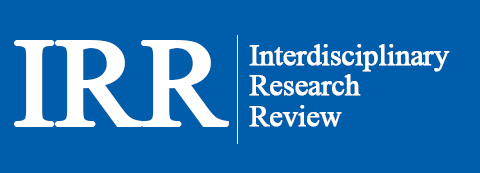The development model of internal supervision management according to standards of the early childhood education schools under the Office of the Basic Education Commission
Main Article Content
Abstract
The objectives of this study were 1) to study the relevant documents and confirm the elements of internal supervision management according to standards of the early childhood education schools under the Office of the Basic Education Commission (OBEC), 2) to investigate the present situations, management problems, and feasible guidelines for internal supervision management according to standards of the early childhood education schools under the OBEC, 3) to develop and verify of internal supervision management according to standards of the early childhood education schools under the OBEC. A synthesis table, a confirmative form, an in-depth interview form, a semi-structured interview form, and a verification form were used as instruments. The statistics used for analysis were frequency, percentage, and content analysis. The research results were as follows: 1. The elements of internal supervision management according to standards of the early childhood education schools under the OBEC after confirmation comprised of four components as follows: 1.1) planning, 1.2) organizing, 1.3) leading and 1.4) controlling. 2. The current situations, management problems, and feasible guidelines for internal supervision management according to standards of the early childhood education schools under the OBEC also comprised of four elements as follows: 1.1) planning, 1.2) organizing, 1.3) leading and 1.4) controlling. 3. A model of internal supervision management according to standards of the early childhood education schools under the OBEC comprised of five components components: 1) principles; 2) objectives, 3) operational procedures, 4) evaluation, and 5) conditions for achievement. The accuracy and suitability of the internal supervision management were both at the highest level.
Article Details

This work is licensed under a Creative Commons Attribution-NonCommercial-NoDerivatives 4.0 International License.
References
Bureau of Academic Affairs and Educational Standards, Ministry of Education, Thailand. (2017). Early Childhood Curriculum B.E. 2560 (A.D. 2017). Retrieved from http://academic.obec.go.th/images/document/1572317446_d_1.pdf
Bureau of Educational Testing, Office of the Basic Education Commission. (2018). Guidelines for Quality Assessment by Educational Standards for Early Childhood Education according to the Office of the Basic Education Commission. Retrieved from https://bet.obec.go.th/Bet_Obec/1671
Ekemezie, C. A., & Anyaogu, A.G. (2021). Principals and Internal Supervision for the Development of Teacher Quality and Standards in Secondary Schools in Abia State
UNIJERPS, Unizik Journal of Educational Research and Policy Studies, (3);
https://unijerps.org/index.php/unijerps/article/download/44/40
Kanyayon, S. (2021). Guidelines for Development of Educational Quality Through Internal Supervision Process of Wat Ku Kham Municipality School, Chiang Mai Province. Journal of Buddhistic Sociology, 6(1), 51-62 https://so06.tci-thaijo.org/index.php/BSJ/article/download/244132/168079/873938
Kosanpipat, S., Anussornrajakit, H., & Kongruang, S. (2023). Research and development of roving team network to support the competency-based production process of quality teachers in the early childhood education program, Faculty of Education, Rajabhat University: A case study Chiang Mai Rajabhat University. Interdisciplinary Research Review, 18(3). Retrieved from https://ph02.tci-thaijo.org/index.php/jtir/article/view/247220
Naksorn, S., Kosanpipat, S., Suwatthee, P., & Boonchai, T. (2022). The Components of Internal Supervision Management According to Standards of the Early Childhood Education Schools under the Office of the Basic Education Commission. Refereed Proceedings of the 18th. National Academic Conference and Research Presentations, Western University (pp. 189-105).
Office of the Basic Education Commission. (2019). Ministry of Education. Early Childhood Education Standards for Internal Quality. Retrieved from
http://thesis.swu.ac.th/swupam/Ed_St_P151249.pdf
Office of the Education Council. (2017). National Scheme of Education B.E. 2560-2579 (2017-2036). Retrieve from http://www.onec.go.th/index.php/book/BookView/1540
Pongsaranuntakul, Y., Rungamornarat, S., Nookong, A., & Supchareonmak, L. (2021). Quality Improvement Model for Early Childhood Development Center: A Case Study of Child Development Center under Bangkok Metropolitan Administration. Nursing Science Journal of Thailand, 39(3), 91–105. Retrieved from https://he02.tci-thaijo.org/ index.php/ns/article/view/248975
Royal Thai Government Gazette. (2017). Thailand’s 20 – Year National Strategy. (2017-2036). Retrieve from http://www.ratchakitcha.soc.go.th/DATA/PDF/2561/A/082/T_0001.PDF
Runcharoen, T. (2010). Administration for Learning Reform. Bangkok: Khaofang: Publishing
Saengthong, W., Klungklang, W., Sawaengphon, A., Masena, C., & Chouranong, N. (2022). Internal School Supervision in the New Era : How to Supervise Teachers in the New Normal Era. Journal of Graduate School, Pitchayatat, Ubon Ratchathani Rajabhat University, 17(1), 123–133. Retrieved from https://so02.tci-thaijo.org/index.php/ Pitchayatat/article/view/252502
Somrit, W., Ouppinjai, S., & Wetcha, P. (2021). THE GUIDELINES a guideline for school supervision management in learning management. Under the Office of Phayao Primary Educational Service Area 2. Journal of MCU Phetchaburi Review, 4(1), 1–14. Retrieved from https://so03.tci-thaijo.org/index.php/JPR/article/view/253012
UNICEF. (2022). UNICEF Thailand Early Childhood Development 2022-2026
Retrieved from https://www.unicef.org/thailand/media/9671/file/UNICEF_Thailand_ Country_Programme ECD_EN.pdf


